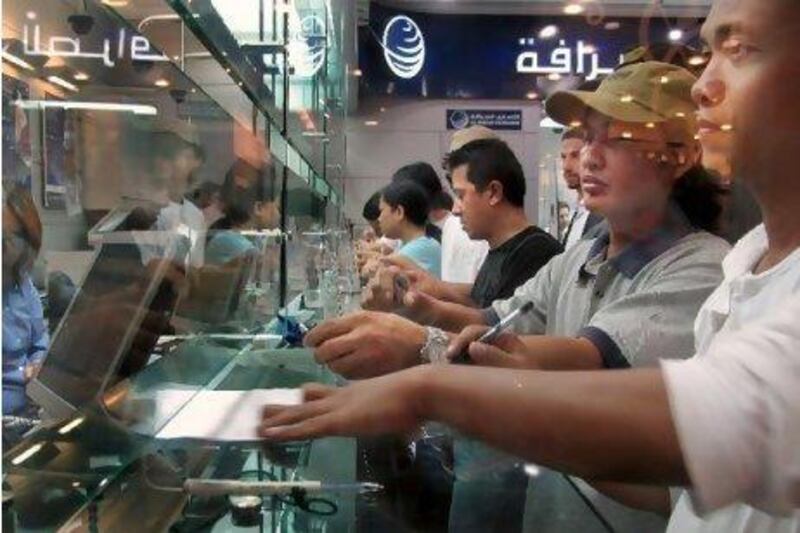Al Ansari Exchange in December stopped money transfers to and from Iran, which represented about 1 per cent of its business, said Mohammed Al Ansari, the chairman and managing director of the firm, one of the biggest exchange service providers in the Emirates.
"We have stopped transactions with Iran because it's so difficult with the new regulations brought in by the US," he said.
"There is no law to ban transactions with Iran, but nobody wants to be blocked by the US financial system."
Many other exchange houses are also scaling back their exposure to Iran to avoid the risk of falling foul of international sanctions and as the weakening Iranian rial against the US dollar dampens demand for transactions, said Mr Al Ansari, who is also the chairman of the UAE's Foreign Exchange & Remittance Group, an industry association.
The moves come as the US Treasury department warns UAE currency and exchange houses to be on their guard for attempts by Iran to use them as a conduit to evade international sanctions, as western nations constrict Iran's access to the financial system in an attempt to drag the country back to the negotiating table.
There are many Iranian expatriates in the UAE who send money home to support their families as the country's economy crumbles and the rial loses value.
But this channel is a potential weak point in the financial system because it is not covered by UN sanctions, said an official at the US Treasury.
"Given the level of commerce between the UAE and Iran, the increased pressure that Iran's banking network has come under, and the history of deceptive conduct by Iranian financial and trade companies, currency and exchange houses in the UAE should be highly vigilant in their dealings to avoid engaging in illicit or sanctionable behaviour," the official said, asking not to be named.
"The UAE has expressed its support for sanctions to pressure Iran to address the international community's concerns about its illicit nuclear activities."
The World Bank estimates Iran received US$1.3 billion (Dh4.7bn) in remittances last year, from a diaspora that fled the country's Islamic revolution in 1979 to locations including New York, California, London and Germany.
The US has sought to cut off Iran's access to the world financial system through laws allowing it to impose sanctions on foreign banks that deal with Iran's central bank to facilitate oil purchases.
Similar EU legislation is also expected.
In December, Dubai's Noor Islamic Bank was forced to end its relationships with two banks, Bank Saderat Iran and Bank Melli Iran, after the US applied pressure.
But the sanctioning of remittance channels is especially delicate because restrictions could affect individuals in Iran with no links with the country's government or nuclear programme, said Tim Plews, a partner at Clifford Chance, a law firm. "You don't want to antagonise the Iranian population at home in Iran by closing down that channel," he said.
"If currency is shut off to you and it's too difficult to use, you'll use a proxy," he said.
"In the same way that we saw back in history, in the 1930s hyperinflation in Germany and in Zimbabwe a few years ago, people will give up using paper money and use other stores of value."
Last month, Iran's central bank governor said the country would allow the use of gold as a payment for oil sales, in what was described as an attempt to circumvent international sanctions.
The move smacked of desperation by the country's government and in any event had done little to affect Dubai's market, said Gerhard Schubert, the head of precious metals at Emirates NBD.
Gold bullion is the UAE's top re-export, with the emirate importing Dh9.7bn worth and exporting Dh5.4bn worth last year, according to data from the Federal Customs Authority.
With few avenues available for investment, Iranians have ploughed money into the property sector, which has been linked to a speculative property bubble in Tehran.
The Iranian government is planning to build 1 million new houses in an effort to bring down prices.
tarnold@thenational.ae





